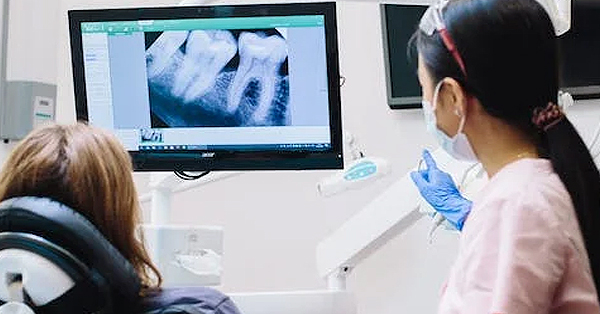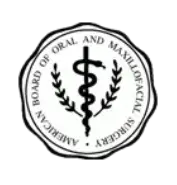Top 5 Tips for Recovering from Oral Surgery
Oral surgery is extremely common. From having your wisdom teeth removed to receiving dental implants, there are several types of oral surgeries you may need throughout your life. Although it's normal to have minor discomfort after surgery, recovery is typically quick and stress-free. However, to reduce the chance of any complications after the procedure, there are some tips to keep in mind.
This article will explain five tips for getting back to normal after oral surgery.
-
Don't Overexert Yourself
After your surgery ends, resting is essential. Following the procedure, make sure to take it easy for the remainder of the day. While most people can return to normal activities in 24 hours, you shouldn't overexert yourself for the next week. It is best to avoid activities such as running, biking, or doing anything strenuous. If you lift something heavy or move in a particular position, this can dislodge a blood clot and cause bleeding.
For the rest of the day after surgery, make sure to limit activities that require concentration. Try to avoid driving a car, studying, or working. If you received a sedative for the procedure, concentrating on anything can be challenging. Resting is the best way to speed up the recovery process and limit the chance of any complications.
When resting, make sure to keep your head elevated, which will help with blood circulation. Try propping up your head with a few pillows before falling asleep.
-
Avoid Alcohol and Tobacco
During your oral surgery recovery period, you'll want to avoid anything that can disrupt the healing process, including drinking alcohol and using tobacco. It's best to avoid these substances for at least a week following surgery. Using alcohol and tobacco can also cause excessive bleeding and increase the risk of infection. These issues can result in a great deal of pain and possibly more treatment.
As quitting these substances can be difficult, it's essential to talk to your doctor if you need help. By limiting the use of alcohol and tobacco following surgery, you can experience a faster recovery.
-
Apply Ice
Icing the area following surgery is also essential. Once the healing process starts, you may have bruises or facial swelling. While these are entirely normal, applying ice can promote healing and limit pain. You'll want to ice the area as directed for the next 24-48 hours following oral surgery.
Often, you'll be instructed to apply ice to your jaw multiple times in that 24-48 hour period for the best results - for example, icing the area for 30 minutes, removing it for 15 minutes, then icing again for another 30 minutes. You'll probably be asked to repeat these steps for at least 24 hours. If you had the procedure for both sides of your mouth, make sure to follow your oral surgeon's directions about switching sides when applying ice.
While applying ice is standard practice after oral surgery, it's critical to follow the instructions from your oral surgeon. They may recommend a specific process for applying ice.
-
Eat Soft Foods
As you'll probably have some tenderness after oral surgery, it's important to eat soft foods or drink liquid forms of nutrition. Not only will this be more comfortable, but it can also limit the chance of any complications. Make sure to avoid hard foods like candy, apples, or raw vegetables. You should also stay away from foods that are too cold, hot, or spicy. These can all irritate the area.
Experts typically recommend consuming soft foods and drinks, such as applesauce, oatmeal, smoothies, and meal replacement shakes. However, make sure these aren't too hot or cold. After about a week, you should be able to return to your regular diet. However, always refer to your oral surgeon's guidance regarding what you should consume. If you notice sharp pain or discomfort after eating or drinking something, be sure to tell your surgeon.
-
Follow Your Oral Surgeon's Instructions
Above all else, follow the instructions from your oral surgeon. They will provide a detailed recovery plan based on the type of surgery you received. These instructions also depend on how the surgery played out, including your personal needs.
Your oral surgeon may encourage you to refrain from using mouthwash or brushing your teeth, as these can sometimes cause irritation and discomfort. On the other hand, they may recommend only avoiding the tender spots when brushing.
Rinsing with salt water is another standard oral surgery recovery tip. Rinsing with salt water helps reduce the chance of an infection. In addition, the salt speeds up recovery while also mitigating pain. Be sure to rinse with salt water every few hours and after eating meals for a week following surgery, if this is what is suggested by your oral surgeon.
Another crucial tip is to follow your oral surgeon's instructions regarding pain medication. People often take over-the-counter drugs like ibuprofen or acetaminophen, but your surgeon may also prescribe a more potent painkiller. Be sure to take these only as directed, and not to mix over-the-counter and prescription medications without your surgeon's knowledge and approval.
Oral Surgery DC
If you're looking for more oral surgery recovery tips or need an experienced oral surgeon in the Washington DC area, contact Oral Surgery DC today. Our surgeon, Tania Nkungula, DDS, and our team of skilled oral care professionals have years of experience in the industry.
Contact Oral Surgery DC today to learn more.






4.9 Stars
based on 134 reviews
5 Stars
based on 11 reviews
5 Stars
based on 11 ratings